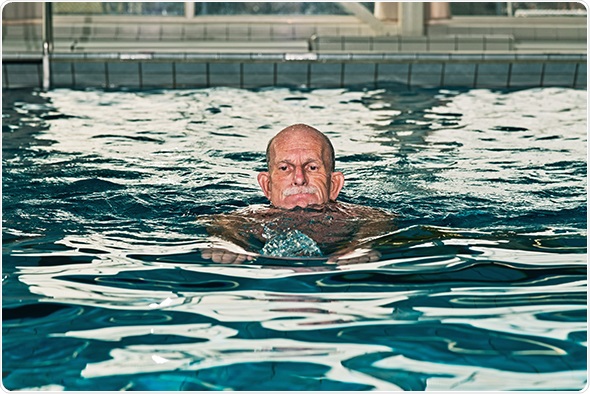The results of a long-term trial show that regular exercise reduces the all-cause death rate in elderly men by 40%. They also indicated that boosting physical activity levels in elderly men provided as much health benefit as giving up smoking.
 Shutterstock.com / Ysbrand Cosijn
Shutterstock.com / Ysbrand Cosijn
The Oslo Study is an observational study that followed almost 15,000 men born between 1923 and 1932. The participants underwent a health check in 1972-3 (Oslo I) during which height, weight, cholesterol, blood pressure and smoking habits were recorded and participants completed the Gothenburg questionnaire on leisure time physical activity levels. Activity level was graded as sedentary (watching TV/reading); light (walking or cycling for at least 4 hours a week); moderate (formal exercise, sporting activities, heavy gardening for at least 4 hours a week); and vigorous (hard training or competitive sports several times a week).
Over 5700 of the surviving men repeated the health check in 2000 (Oslo II) and were monitored for a further 12 years to assess the impact of physical activity level over time on death from cardiovascular disease and death from any cause, and to compare the impact with that of stopping smoking. Over 2000 of these men died during the 12-year follow-up.
The results showed that 30 minutes of physical activity (irrespective of its intensity) a day 6 days a week was associated with a 40% lower risk of death from any cause among elderly men.
Less than an hour a week of light physical activity did not reduce all-cause death risk, but a similar amount of vigorous physical activity, was linked to a reduction in risk of 23–37%. The more time spent doing vigorous exercise, the lower the mortality risk. The death rate among those who undertook light physical exercise for more than an hour a week was 32–56% lower.
Overall, regular moderate-to-vigorous physical activity added an average of 5 years to the lives of the elderly men assessed compare with those who were classified as sedentary.
Since this was an uncontrolled observational study, no definitive conclusions can be drawn about cause and effect. Furthermore, only the healthiest participants survived to enter the 12-year follow-up, and this may have lowered overall absolute risk.
However, since the differences in mortality risk were still so marked and matched those achieved through stopping smoking, it would appear logical for elderly men to be encouraged to be more physically active by highlighting the potential health benefits.